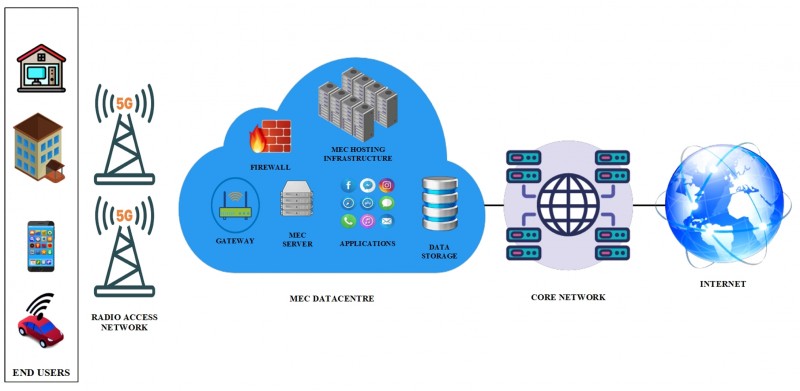Study on Applications in 5G Edge Computing
Edge Computing is a growing network support that manages scalability issue efficiently. This blog makes you easier to know about the integration of 5G with edge computing.
Study on Applications in 5G Edge Computing
Our technical team is available 24/7 for research assistance
Send your techinical enquiries directly to our technical team via mail - support@phdsolutions.org or you can send it to support team via WhatsApp
WhatsApp UsStudy on Applications in 5G Edge Computing presents discussion on definition, integration, and applications. Edge Computing is a top trending research area enables to provide high speed transmissions. In simple, edge computing is a connectivity paradigm that connects devices in a network.
In this blog we give clear line about the 5G edge computing that takes part in real application. This blog helps to gain knowledge and know more about the emerging research areas.
Why Edge Computing integrates 5G?
Edge computing is a platform that gives edge support for the devices requesting from the network. In recent days, the scalability in network is becoming a main issue which is complex to manage. The massive number of devices are assisted in 5G network with higher data rate that faces the challenge of scalability. So 5G joins edge computing to serve all the incoming requests from the devices. The integration of edge computing with 5G is shown below.
MEC with 5G Architecture

Real-time Edge Computing Application
The COVID-19 pandemic exposed gaps in global healthcare systems, leading to increased demand for medical facilities. With a growing population and per capita income, healthcare institutions face challenges in providing quality care. The pandemic imposed an unprecedented strain on healthcare infrastructure, highlighting the slim margins of error. Digital healthcare adoption is crucial for efficiency, collaboration, and smooth facility functioning.
How Edge Computing helps Healthcare System?
Edge computing is rapidly adopted in the healthcare sector, enabling remote patient monitoring, automation of care delivery, and Artificial Intelligence (AI) based diagnosis improvement. AI-embedded edge computing systems detect anomalies and key findings in X-rays, enabling faster and more cost-effective examinations. This combination of edge computing and AI has significant potential across the healthcare spectrum. Edge computing has the potential to revolutionize healthcare by improving on-site paramedics’ treatment and transmitting more specific details on patients’ status and location.
AI joins hand with Edge Computing for Healthcare System
Artificial intelligence (AI) is a popularly known human intelligence that acts better than a human brain in decision-making for any complex situations. The solutions executed by the AI methods are efficient in prediction of results, and it is likely they are applicable for a variety of systems. It includes healthcare systems in which many processes are automated, such as monitoring, maintenance, etc.
In simple, an advanced healthcare system works with edge computing along a communication technology. On behalf of the occurrence of numerous number of message exchanges, edge computing joins AI.
Why to Protect Healthcare Data in Edge Computing?
In order to protect patient data, data security is essential in the healthcare sector. Paper records, which were formerly the standard means of safeguarding patient information, have given way to electronic storage on computers, servers, and other gadgets. Data breaches, malware, viruses, and other hostile assaults are becoming more likely as a consequence. In order to access, update, and record patient data, healthcare personnel rely on technology.
Data may also be exchanged between other institutions and providers. To lower the risks of harmful data theft and technological failures, improved healthcare data security solutions are necessary. Data security is crucial for healthcare operations, as it ensures the protection and efficiency of patient data. Healthcare organizations face increased vulnerability to cyberattacks and must develop effective solutions considering internal and external risk factors.
The healthcare industry faces higher data attack risks due to its detailed patient records and high demand on black markets. Adequate data security solutions are crucial for medical centres to protect against these risks.
Our team is available to assist with any topic from this research area, and we are ready to solve your technical queries. You can get complete guidance from our end to initiate your PhD. Whatever your requirement, our technical team will help you with it.




